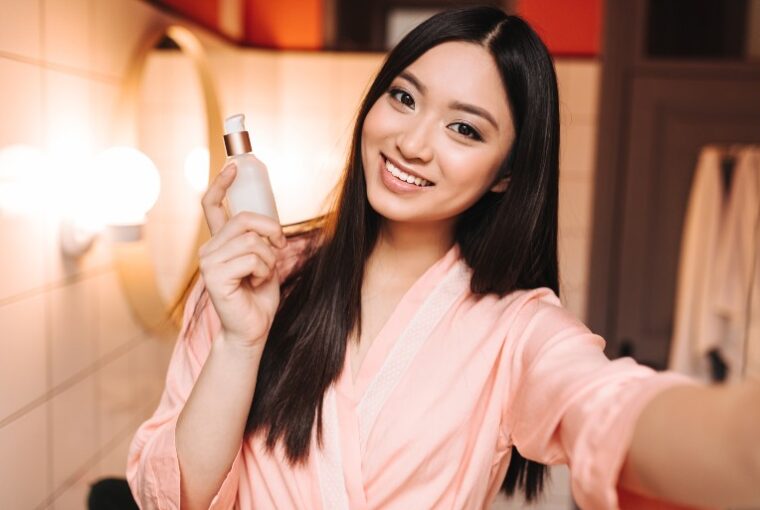If the fountain of youth could be bottled into an elixir, it would surely be a retinol serum. You may have heard of this cult ingredient floating around the beauty sphere for some time now. But if you haven’t started using it yet, you’ll need to read this guide to retinol for beginners.
What is Retinol, Anyway? And What Are Its Benefits?
Retinol is a Vitamin A derivative, which is a nutrient our body uses to boost cell turnover. You might see other variations of retinoids going by the names of retinoic acid and retinyl palmitate.
The benefits of retinol that make it such a celebrated ingredient span a long list. Skin renewal, boosting collagen production, skin brightening, acne-reducing, and antioxidant properties are only a few of the results you’d get from using retinol to revitalise your skin cells. More on the benefits of retinol below!
Anti-Ageing Treatment
Retinol helps your skin look younger in various ways. First, it improves the blood flow to the skin, making it possible for your body to produce more collagen. As a result, the inner layer of the skin can be thickened, which helps to ease the wrinkles.
What’s more, as it boosts the turnover of skin cells, it is helpful with sun damage and dark spots. One of the studies confirming this was conducted in 2000 – after having applied retinol for 7 days, over 50 participants aged 80 and above experienced an improvement in collagen production and a reduction in the collagen breakdown.
However, take into consideration that retinol may make you more prone to sun damage. For this reason, it is highly recommended to use retinol products only at night and to add a broad-spectrum sunscreen every morning (no matter if you go out or not).
Clearing Acne
From the study published in 2017 in the Journal of Clinical Dermatology and Therapy, we can learn that retinol had excellent effects on thousands of people with either inflammatory or non-inflammatory acne. There was proof that not only existing pimples became less visible but also the new pimples and acne blemishes were prevented from appearing.
The most important reason why retinol improves the appearance of acne is that it boosts cell turnover. When dead skin cells are accumulated and combined with oil in your hair follicles, acne can easily develop. Thanks to retinol, you can get rid of those cells and have them replaced faster. Apart from that, it can also reduce oil production and help your pores avoid blocking.
Brightening Skin
Another benefit of the fact that retinol boosts skin cell turnover is the “exfoliating” effect. As it helps to get rid of dull and dry skin, brighter, more even-toned and full of collagen and elastin skin can appear. The new skin is smoother, stronger, thicker, and has fewer imperfections, so it makes our face look better. In this way, even if your skin is not suffering from acne that much, it can still benefit from retinol’s radiating effects.
Antioxidant Properties
The antioxidant properties of retinol were discovered a long time ago – there are studies from the 1990s explaining how they can protect your cells against the impact of free radicals. They are molecules that appear when you are exposed to tobacco smoke and radiation and when your body breaks down food.
Free radicals can be dangerous to your health, as they can lead to cancer, heart disease or other illnesses, so it is better to avoid them. And retinol can be of great help!
Why Do You Need to Ease Your Skin Into It?
If you are a beginner with retinol, you may be surprised by how many benefits this ingredient has. However, you may be hesitant to try out retinol because of the many horror stories surrounding it. Make no mistake — retinol can be a harsh ingredient on the skin, but only if you don’t gradually incorporate it into your skincare routine.
As with any new skincare ingredient, you shouldn’t jump straight into it with no preparation. You might damage your skin, making it more sensitive or dry. Gradually introducing retinol into your skincare routine will allow you to see how it reacts on your skin and build tolerance towards the product.
How Do I Ease My Skin Into It?
Slowly but surely. Beginners should use a product that has a small dosage of retinol. 0.01% to 0.03% is a good place to start, especially if your skin errs on the sensitive side. If your skin is used to active ingredients, you could try a moderate strength, which is 0.04% to 0.1%. High-strength retinol is normally between 0.3% and 1%.
How to Apply a Product With Retinol
First things first, do a small patch test on your arm to see how your skin reacts to it. If you don’t get any reaction, such as redness, swelling, or itching after 24 hours, you’re good to go.
My next recommended step is to try a small amount for your nighttime skincare routine. Use a layering method of lotion, hyaluronic serum, retinol serum, and then a moisturiser to ‘sandwich’ your retinol. This allows for some cushioning so that the retinol doesn’t immediately go on the skin without a moisturising barrier, making it less likely to irritate your skin.
Take Note of Usage Frequency
Don’t use it nightly — retinol is great if you start out using it twice a week to allow your skin to get used to the ingredient. If your skin doesn’t react after a week, you can use it every other day, gradually upping the momentum to nightly. Finally, always use sunscreen for your daytime skincare routine, as retinol makes the skin more sensitive to UV rays. Sunlight also tends to decrease the efficacy of retinol, so it is better to save your product and only use it at night.
The best retinol products
Okay, so which retinol products should you get as a beginner? I’m glad you asked. Below are some low- to medium-strength serums that beginners to retinol can try:
The Ordinary Granactive Retinoid 0.2% in Squalane
This alcohol-free retinol serum is popular among many people and is great for beginners. Granactive Retinoid is an improved, less-irritating version of retinol that will give you the same results.
Paula’s Choice Skin Recovery Serum
This hydrating serum contains 0.01% retinol, making it a very low-strength serum with potent antioxidants. Another reason to use this is that it’s also great for dry skin. It has moisturising, easing, and anti-ageing properties, so it can significantly improve the condition of your skin.
First Aid Beauty Retinol Serum 0.25% Pure Concentrate
Formulated with moisturising ingredients including hyaluronic acid, ceramides, and aloe vera, this retinol serum won’t feel harsh on the skin.
La Roche-Posay Redermic R Dermatological Anti-Aging Treatment Intensive
This treatment has a lightweight and non-greasy texture that’s perfect for those with oily and combination skin. It has 0.3% retinol, and its anti-wrinkle effects have been clinically tested. It helps to ease the wrinkles and dark spots, making them less visible. It is suitable even for sensitive skin.
Cerave Skin Renewing Retinol Serum
This gentle retinol serum is also popular among Cerave fans, as it’s formulated with other moisturising ingredients such as hyaluronic acid and ceramide. It also contains niacinamide, another popular trending ingredient in skincare.
The Inkey List Retinol
Last but not least on the list is this no-fuss retinol serum. It’s great for beginners that’s also at an affordable price point. As it has only 0.05% retinol, you can have it for a start and check how your skin reacts to this substance, reducing the risk of irritations.
The Bottom Line
All in all, as you can see, retinol can be really beneficial to your skin, and it is not hard to find products containing it and start improving your skincare. They have different combinations of ingredients and various percentages of retinol, so you can choose the one that will be the most appropriate to your needs.
If you stick to the application instructions and use retinol products only at night, you shouldn’t experience any major side effects. So, what stopping you from trying it out?








